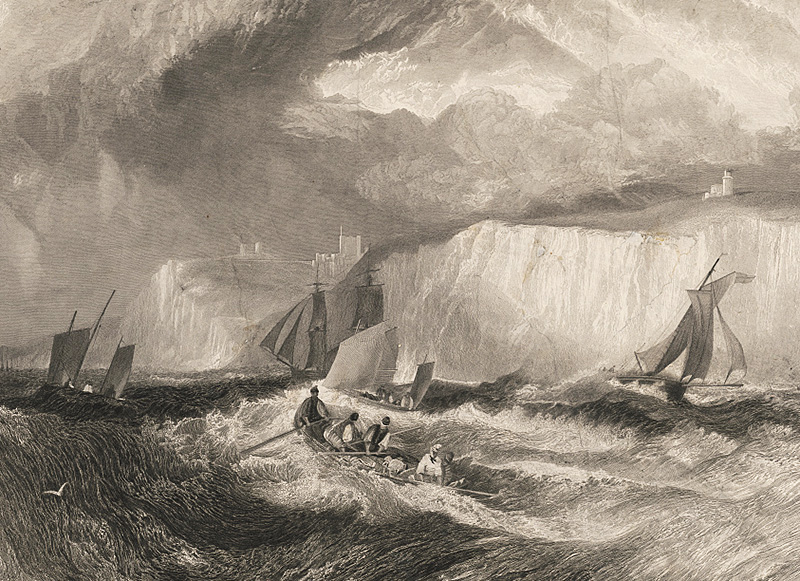
I remember as a teenager on a family vacation in Oregon, joining my dad and uncle in a small boat where we ventured out into the ocean to try our luck at some deep sea fishing. All we caught were a few crabs before the waves started swelling higher and higher. It was quite frightening, plummeting down 30 foot high waves of water in the small fishing boat as we made our way back to shore.
I’m sure that anyone who has experienced even a remote semblance of a storm while in a boat on the ocean can appreciate what an utter helpless feeling it is to be at the mercy of the elements. How incredibly delicate and unstable are our lives in the broader perspective of things.
Imagine the earth, balanced precariously in space as it wobbles like a top on its axis, being held in place by whatever incredible combination of miraculous conditions that hold everything together. And ponder the incredibly tiny sliver of space we call our atmosphere within which we rely for our existence.
“The most striking thing about our atmosphere is that there isn’t very much of it. It extends upwards for about 190 kilometers, which might seem reasonably generous when viewed from ground level, but if you shrank the Earth to the size of standard desktop globe, it would only be about the thickness of a couple of coats of varnish.”
Bill Bryson, A Really Short History of Nearly Everything, pg 97
I’m almost finished with my reading of the Book of Enoch. Yesterday morning’s reading of chapter 101 compared our uncertain and fragile lives with man’s propensity for arrogance against God:
Examine the heaven, you sons of heaven, and all the works of the Most High; and be afraid to do evil in his presence. 2. If he closes the windows of heaven and hinders the rain and the dew from descending upon the earth because of you, what will you do? 3. Or, if he sends his anger against you (and) your deeds, is it not you who would entreat him? Because you utter bold and hard (words) against his righteousness, you shall have no peace. 4. Do you not see the sailors of the ships, how their ships are tossed up and down by the billows and are shaken by the winds, and they become anxious? 5. On this account (it is evident that) they are seized by fear, for they will discharge all their valuable property – the goods that are with them – into the sea, they think in their hearts that the sea will swallow them up and they will perish in it. 6. Is not the entire sea and all her waters and all her movements the very work of the Most High? Has he not ordered her courses of action and her waters – (indeed) her totality – with sand? 7. At his rebuke they become frightened, and she dries up then her fish die and all that is in her. But you, sinners, who are upon the earth, fear him not! 8. Did he not make the heaven and the earth and all that is in them? Who gave the knowledge of wisdom to all those who move upon the earth and in the sea? 9. Do not the sailors of the ships fear the sea? Yet the sinners do not fear the Most High.
1 En 101, Old Testamant Pseudepigrapha, James H. Charlesworth
Consider King Benjamin’s description that we are supported and preserved by God’s power moment to moment, how He lends us breath and sustains us that we may live and move and do according to our own will (Mosiah 2:21. See also Acts 17:28). Not only does God put up with our brass overconfidence in ourselves, he sustains us in the very act of our disdain for His role in supporting us day by day.
In 2 Enoch, God put it this way:
“There is no counselor and no successor, only myself, eternal, not made by hands. My unchanging thought is (my) counselor, and my word is (my) deed. And my eyes behold all things. If I turn my face away, then all falls into destruction; but if I look at it, then all is stable.”
2 Enoch (A) 33:4, Old Testament Pseudepigrapha, 1:157, emphasis mine.
All it involves for God’s spirit to “no longer strive with man” (Gen 6:3) is for Him to withdraw His gaze.
In the last few weeks a great alarm has been raised about a viral pandemic. It illustrates something about all nations and institutions: Although they may seem durable, they are all vulnerable and easily destroyed by very simple means. Like locusts destroying crops of Egypt in the story of Exodus (Ex 10:12-20), great societies are shaken through the smallest of means.
The good news is that although all this has given us a glimpse of how unstable our lives and society can be, it is also evident that God has not yet withdrawn His gaze. There is still much work yet to be done in the Lord’s vineyard (see Jacob 5:47-51). Will we be among those branches who respond favorably to the unsettling pruning, digging, cutting, moving and grafting that is currently underway?